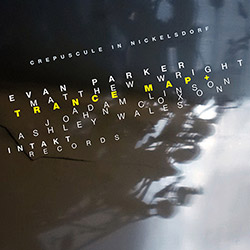
Composed by saxophonist Evan Parker and electronic artist Matthew Right, "Trance Map" has Parker triggering interactions with samples from Wright's record collection, reshaped by live processing, here in an incredible expanded performance at Konfrontationen 2017 with Adam Linson on bass & electronics, John Coxon on turntable & electronics, and Ashley Wales on electronics.
Out of Stock
Quantity in Basket: None
Log In to use our Wish List
Shipping Weight: 5.00 units
Sample The Album:
Evan Parker-soprano saxophone
Matthew Wright-turntable, live sampling
Adam Linson-double bass, electronics
John Coxon-turntable, electronics
Ashley Wales-electronics
Click an artist name above to see in-stock items for that artist.
UPC: 7640120193294
Label: Intakt
Catalog ID: ITK329
Squidco Product Code: 27925
Format: CD
Condition: New
Released: 2019
Country: Switzerland
Packaging: Jewel Case
Recorded at Konfrontationen 2017, in Nickelsdorf, Austria, on July 22nd, 2017, by Hans Holler.
"A dream-like aura surrounds these recordings by Evan Parker and Mathew Wrigh. "Filtered through the silicon of the hard drive, birds and insects often sound electronically generated and some of the synthesized sounds, designed in software, sound like birds and insects with wings of their own," writes American journalist Bill Shoemaker. The real seems virtual; the virtual seems real - it is the ambiguity essential to the power of dreams. Evan Parker and Matt Wright met in 2008 and out of their first studio sessions developed Trance Map - a project, that mixes field recordings, samples from cassettes, turntable scratching and the live processing of Evan Parkers's relentlessly evolving saxophone lines. Since that time Trance Map has developed to include live events across Europe. Evan Parker recommends playing Trance Map late at night at a low volume and letting the music point the way to and through sleep - beautiful dreams, that's what he wishes the listener. That may be possible with Crepuscule in Nickelsdorf, although the enthusiastic applause at the end of the performance confirms the audience remained wide awake throughout. A better send-off for the listener of this recording may well be to say Bon Voyage."-Intakt
Artist Biographies
• Show Bio for Evan Parker "Evan Parker was born in Bristol in 1944 and began to play the saxophone at the age of 14. Initially he played alto and was an admirer of Paul Desmond; by 1960 he had switched to tenor and soprano, following the example of John Coltrane, a major influence who, he would later say, determined "my choice of everything". In 1962 he went to Birmingham University to study botany but a trip to New York, where he heard the Cecil Taylor trio (with Jimmy Lyons and Sunny Murray), prompted a change of mind. What he heard was "music of a strength and intensity to mark me for life ... l came back with my academic ambitions in tatters and a desperate dream of a life playing that kind of music - 'free jazz' they called it then." Parker stayed in Birmingham for a time, often playing with pianist Howard Riley. In 1966 he moved to London, became a frequent visitor to the Little Theatre Club, centre of the city's emerging free jazz scene, and was soon invited by drummer John Stevens to join the innovative Spontaneous Music Ensemble which was experimenting with new kinds of group improvisation. Parker's first issued recording was SME's 1968 Karyobin, with a line-up of Parker, Stevens, Derek Bailey, Dave Holland and Kenny Wheeler. Parker remained in SME through various fluctuating line-ups - at one point it comprised a duo of Stevens and himself - but the late 1960s also saw him involved in a number of other fruitful associations. He began a long-standing partnership with guitarist Bailey, with whom he formed the Music Improvisation Company and, in 1970, co-founded Incus Records. (Tony Oxley, in whose sextet Parker was then playing, was a third co-founder; Parker left Incus in the mid-1980s.) Another important connection was with the bassist Peter Kowald who introduced Parker to the German free jazz scene. This led to him playing on Peter Brötzmann's 1968 Machine Gun, Manfred Schoof's 1969 European Echoes and, in 1970, joining pianist Alex von Schlippenbach and percussionist Paul Lovens in the former's trio, of which he is still a member: their recordings include Pakistani Pomade, Three Nails Left, Detto Fra Di Noi, Elf Bagatellen and Physics. Parker pursued other European links, too, playing in the Pierre Favre Quartet (with Kowald and Swiss pianist Irene Schweizer) and in the Dutch Instant Composers Pool of Misha Mengelberg and Han Bennink. The different approaches to free jazz he encountered proved both a challenging and a rewarding experience. He later recalled that the German musicians favoured a "robust, energy-based thing, not to do with delicacy or detailed listening but to do with a kind of spirit-raising, a shamanistic intensity. And l had to find a way of surviving in the heat of that atmosphere ... But after a while those contexts became more interchangeable and more people were involved in the interactions, so all kinds of hybrid musics came out, all kinds of combinations of styles." A vital catalyst for these interactions were the large ensembles in which Parker participated in the 1970s: Schlippenbach's Globe Unity Orchestra, Chris McGregor's Brotherhood of Breath, Barry Guy's London Jazz Composers Orchestra (LJCO) and occasional big bands led by Kenny Wheeler. In the late 70s Parker also worked for a time in Wheeler's small group, recording Around Six and, in 1980, he formed his own trio with Guy and LJCO percussionist Paul Lytton (with whom he had already been working in a duo for nearly a decade). This group, together with the Schlippenbach trio, remains one of Parker's top musical priorities: their recordings include Tracks, Atlanta, Imaginary Values, Breaths and Heartbeats, The Redwood Sessions and At the Vortex. In 1980, Parker directed an Improvisers Symposium in Pisa and, in 1981, he organised a special project at London's Actual Festival. By the end of the 1980s he had played in most European countries and had made various tours to the USA, Canada, Australia, New Zealand and Japan. ln 1990, following the death of Chris McGregor, he was instrumental in organising various tributes to the pianist and his fellow Blue Notes; these included two discs by the Dedication Orchestra, Spirits Rejoice and lxesa. Though he has worked extensively in both large and small ensembles, Parker is perhaps best known for his solo soprano saxophone music, a singular body of work that in recent years has centred around his continuing exploration of techniques such as circular breathing, split tonguing, overblowing, multiphonics and cross-pattern fingering. These are technical devices, yet Parker's use of them is, he says, less analytical than intuitive; he has likened performing his solo work to entering a kind of trance-state. The resulting music is certainly hypnotic, an uninterrupted flow of snaky, densely-textured sound that Parker has described as "the illusion of polyphony". Many listeners have indeed found it hard to credit that one man can create such intricate, complex music in real time. Parker's first solo recordings, made in 1974, were reissued on the Saxophone Solos CD in 1995; more recent examples are Conic Sections and Process and Reality, on the latter of which he does, for the first time, experiment with multi-tracking. Heard alone on stage, few would disagree with writer Steve Lake that "There is, still, nothing else in music - jazz or otherwise - that remotely resembles an Evan Parker solo concert." While free improvisation has been Parker's main area of activity over the last three decades, he has also found time for other musical pursuits: he has played in 'popular' contexts with Annette Peacock, Scott Walker and the Charlie Watts big band; he has performed notated pieces by Gavin Bryars, Michael Nyman and Frederic Rzewski; he has written knowledgeably about various ethnic musics in Resonance magazine. A relatively new field of interest for Parker is improvising with live electronics, a dialogue he first documented on the 1990 Hall of Mirrors CD with Walter Prati. Later experiments with electronics in the context of larger ensembles have included the Synergetics - Phonomanie III project at Ullrichsberg in 1993 and concerts by the new EP2 (Evan Parker Electronic Project) in Berlin, Nancy and at the 1995 Stockholm Electronic Music Festival where Parker's regular trio improvised with real-time electronics processed by Prati, Marco Vecchi and Phillip Wachsmann. "Each of the acoustic instrumentalists has an electronic 'shadow' who tracks him and feeds a modified version of his output back to the real-time flow of the music." The late 80s and 90s brought Parker the chance to play with some of his early heroes. He worked with Cecil Taylor in small and large groups, played with Coltrane percussionist Rashied Ali, recorded with Paul Bley: he also played a solo set as support to Ornette Coleman when Skies of America received its UK premiere in 1988. The same period found Parker renewing his acquaintance with American colleagues such as Anthony Braxton, Steve Lacy and George Lewis, with all of whom he had played in the 1970s (often in the context of London's Company festivals). His 1993 duo concert with Braxton moved John Fordham in The Guardian to raptures over "saxophone improvisation of an intensity, virtuosity, drama and balance to tax the memory for comparison". Parker's 50th birthday in 1994 brought celebratory concerts in several cities, including London, New York and Chicago. The London performance, featuring the Parker and Schlippenbach trios, was issued on a highly-acclaimed two-CD set, while participants at the American concerts included various old friends as well as more recent collaborators in Borah Bergman and Joe Lovano. The NYC radio station WKCR marked the occasion by playing five days of Parker recordings. 1994 also saw the publication of the Evan Parker Discography, compiled by ltalian writer Francesco Martinelli, plus chapters on Parker in books on contemporary musics by John Corbett and Graham Lock. Parker's future plans involve exploring further possibilities in electronics and the development of his solo music. They also depend to a large degree on continuity of the trios, of the large ensembles, of his more occasional yet still long-standing associations with that pool of musicians to whose work he remains attracted. This attraction, he explained to Coda's Laurence Svirchev, is attributable to "the personal quality of an individual voice". The players to whom he is drawn "have a language which is coherent, that is, you know who the participants are. At the same time, their language is flexible enough that they can make sense of playing with each other ... l like people who can do that, who have an intensity of purpose." " ^ Hide Bio for Evan Parker • Show Bio for Matthew Wright "Matthew Wright B. 1977, Norwich, UK Matt Wright works internationally as a composer, performer, sound designer and producer. His compositional output stretches from scores for early music ensembles and contemporary chamber groups to digital improvisation, experimental turntablism and website installations, alongside collaborations with dance, theatre and film. As a performer he works with turntables, laptops and surround sound installations to create post-DJ, multichannel music embracing hip hop, avant and improvised traditions. His lives in Canterbury, where he runs the annual WINTERSOUND experimental music and sound festival. He works closely with Evan Parker in their live/studio project Trance Map and Trance Map+ (featuring guests such as Toma Gouband, Peter Evans, Spring Heel Jack and Mark Nauseef); with Ensemble Klang in The Hague (including the albums Music at the Edge of Collapse and Cold Highlife); with the Brussels-based Bl!ndman ensemble and composer Eric Sleichim (including NETWORK, directed by Ivo van Hove and starring Breaking Bad actor Bryan Cranston, as well as Beyond/Behind with soprano Claron McFadden); with Champ D'Action in Antwerp (including the LABO international arts residency); with The Six Tones based in Stockholm and Hanoi; with Ensemble Offspring in Sydney; with CEPROMusic in Mexico City; as sound designer for Elaine Mitchener and as guest with the Alexander Hawkins Ensemble (on the record 'Unit[e]'); as well as duo projects with Irreversible Entanglements saxophonist Keir Neuringer (Speak Cities), The Chap's Panos Ghikas (Unrealtime Combat), violinist/composer Roger Redgate (Single Combat) and saxophonist/composer Robert Stillman (The Wheel, BBC Radio 3's Exposure Ramsgate). His work has been presented at the Sydney Opera House, Le Poisson Rouge (New York), the Muziekcentrum an 't IJ (Amsterdam), The Kim Ma Theatre (Vietnam) and Abbey Road Studios, Tate Britain and Tate Modern. He has been commissioned by organisations such as The Huddersfield Contemporary Music Festival (hcmf//) and the MATA Festival (New York), his work being regularly broadcast on radio across Europe, but also including a two-hour focus on his work on the ABC Network in Australia. Reviews of his projects have appeared in the New York Times, the Sydney Morning Herald, Vietnam Today and the Financial Times. He remixed Robert Wyatt's Cuckooland album into a concert-length collaboration with Elaine Mitchener, Tony Hymas and the Brodsky Quartet, and Totem for Den Haag was selected to represent UK new music in Mexico City in 2015. His work is presented on Relative Pitch, Psi, Migro, Ensemble Klang, Extra Normal and Intakt.He studied Composition with Richard Steinitz and with Christopher Fox at the University of Huddersfield; with Steve Martland in London, Louis Andriessen, Martijn Padding and Richard Ayres at The Royal Conservatory of the Netherlands and with Roger Redgate at Goldsmiths College, London. Matt is a Professor of Composition and Sonic Art at Canterbury Christ Church University, regularly gives guest lectures across the UK and Europe and is an Associate Researcher at the Orpheus Institute, Ghent." ^ Hide Bio for Matthew Wright • Show Bio for Adam Linson "Adam Linson (born 1975 in Los Angeles) is active internationally as a double bassist, improvisor, and composer, who performs acoustically and with live electronics, solo and in a wide variety of ensembles. He can be heard on several critically acclaimed albums, which also feature the real-time interactive computer music systems that he designs and develops. He is also a scholar whose interdisciplinary research on improvisation uniquely combines the arts, humanities, sciences, and technology. His publications focus on perception, cognition, and interaction, and span a range of topics in philosophy, cognitive science, music psychology, and artificial intelligence/robotics. He recently completed a Postdoctoral Fellowship at the University of Edinburgh, Institute for Advanced Studies in the Humanities, conducting interdisciplinary research on the common cognitive basis of improvisation across domains. In 2014-15, he was a Research Associate at the University of Oxford, Faculty of Music, where he was formerly a CMPCP Visiting Fellow. He completed his PhD (Open University, UK) using artificial intelligence and robotics to investigate cognition in collaborative improvisation, funded by the Centre for Research in Computing. He has a Master of Fine Arts in Music/Sound (Bard College), and a BA in Philosophy from the University of California, San Diego, where he also studied composed and improvised music under George Lewis and classical double bass under Bertram Turetzky. His extensive experience as a software engineer and GNU/Linux specialist ranges from large-scale distributed architectures to embedded systems. Linson's sustained involvement with interactive computer music is documented on albums with the Evan Parker Electro-Acoustic Ensemble in 2004 (ECM); solo double bass and electronics in 2006 (psi); a 2007 duet with Lawrence Casserley, released in 2009 (psi); the John Butcher Group in 2008 (WoW); and a January 2008 recording, released in 2011 (psi), with Axel Dörner, Paul Lytton, and Rudi Mahall, collectively known as Systems Quartet. In February 2012, the premier performance of his piece Looms (for improvisors and 16-channel spherical diffusion) was given with Evan Parker on soprano saxophone and Linson on double bass, at the Electric Spring festival in Huddersfield (UK). Notable acoustic guest performances include concerts in Paris and Brussels as part of the Evan Parker Trio with Paul Lytton, and in Berlin with the Alexander von Schlippenbach Trio featuring Parker and Paul Lovens. In addition to collaborations with numerous improvisors in groups of various sizes, he has performed in duets with Richard Barrett, Tom Blancarte, Lawrence Casserley, Peter Evans, Owen Green, Aleks Kolkowski, Okkyung Lee, Rudi Mahall, Jon Rose, John Russell, Joel Ryan, and Nate Wooley. From 1999-2009 he was based in Berlin, Germany, where he began many continuing musical collaborations with distinguished improvisors. In 2004 and 2008, he was an artist-in-residence at the Studio voor Elektro-Instrumentale Muziek (STEIM), Amsterdam. His compositions for chamber ensembles and contemporary dance productions have been performed in Europe and North America, and his performances and recordings have been broadcast on US and international radio, including BBC Radio 3 (UK) and SWR (Germany). Selected past festival performances include the Glasgow Jazz Festival (2015), with Evan Parker & the Glasgow Improvisers Orchestra; GIOfest VII, Glasgow (2014), with the Glasgow Improvisers Orchestra, the London Jazz Festival (2013) with John Russell's Quaqua Ensemble; Banlieues Bleues, Paris (2012) in a sextet with Evan Parker, Ikue Mori, Mark Nauseef, Matt Wright, and Toma Gouband; Freedom of the City, London (2011) in a duet with Lawrence Casserley, an octet with Evan Parker, and with the London Improvisors Orchestra; the Huddersfield Contemporary Music Festival (UK) with the LFO Orchestra (2010), the John Butcher Group (2008), and solo double bass and electronics (2006); the Guelph Jazz Festival (Canada, 2010) on solo double bass and electronics; the London Jazz Festival (2009) with Lawrence Casserley; the Total Music Meeting in Berlin (2008) in a quartet with Evan Parker, Peter Evans, and Richard Barrett, and a quintet with Fred van Hove, John Edwards, Louis Moholo-Moholo, and Tomek Choloniewski; and the MusikTriennale in Cologne (2007), with the Evan Parker Electro-Acoustic Ensemble. Linson is currently based in the UK." ^ Hide Bio for Adam Linson • Show Bio for John Coxon "John Coxon, perhaps uniquely for an improvising guitarist, is inspired as much by the plangencies of Reggie Young as by the astringencies of Derek Bailey. As irascible and as spiky as it gets, his playing is always haunted by the ghosts of popular song and fragments of the blues." ^ Hide Bio for John Coxon • Show Bio for Ashley Wales "Ashley Wales is a British composer and record producer, one half of Spring Heel Jack with John Coxon and an integral part of Bruise with Tony Bevan. He put on and hosted the monthly 'back in your town' concerts at the Red Rose in North London which saw the likes of John Tchicai, Other Dimensions in Music, Matthew Shipp, Han Bennink and many others playing with local improvising musicians. Ashley uses a wide range of sources to make music with including live sampling, electronics and acoustic instruments." ^ Hide Bio for Ashley Wales
4/9/2025
Have a better biography or biography source? Please Contact Us so that we can update this biography.
4/9/2025
Have a better biography or biography source? Please Contact Us so that we can update this biography.
4/9/2025
Have a better biography or biography source? Please Contact Us so that we can update this biography.
4/9/2025
Have a better biography or biography source? Please Contact Us so that we can update this biography.
4/9/2025
Have a better biography or biography source? Please Contact Us so that we can update this biography.
Track Listing:
1. Crepuscule In Nickelsdorf. Part 1 7:08
2. Crepuscule In Nickelsdorf. Part 2 6:40
3. Crepuscule In Nickelsdorf. Part 3 7:51
4. Crepuscule In Nickelsdorf. Part 4 6:27
5. Crepuscule In Nickelsdorf. Part 5 11:32
6. Crepuscule In Nickelsdorf. Part 6 3:48
7. Crepuscule In Nickelsdorf. Part 7 15:29
Intakt
Improvised Music
Free Improvisation
Electro-Acoustic
Electro-Acoustic Improv
London & UK Improv & Related Scenes
Parker, Evan
Quintet Recordings
Turntablists
Electronic Forms
Staff Picks & Recommended Items
Search for other titles on the label:
Intakt.


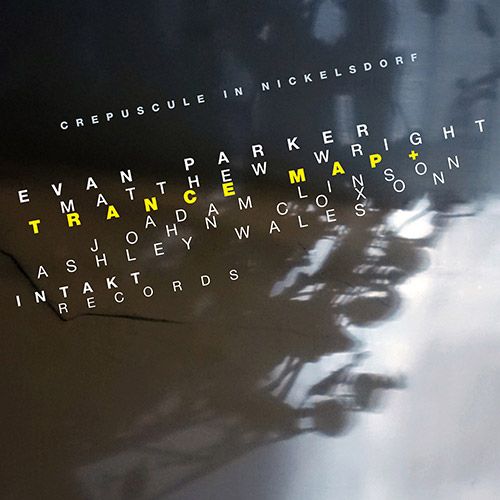

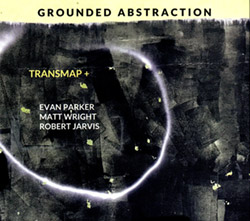

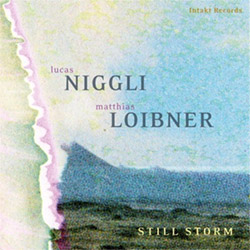
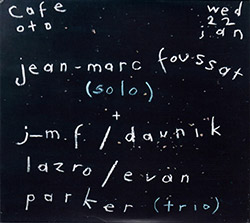
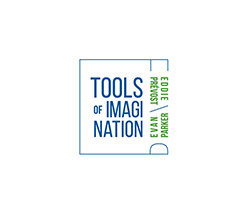
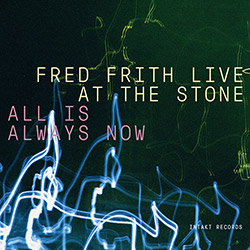
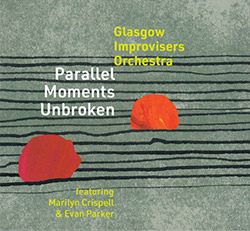
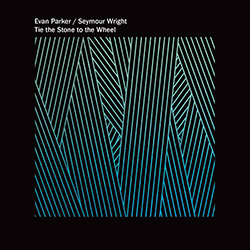


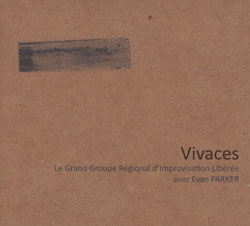
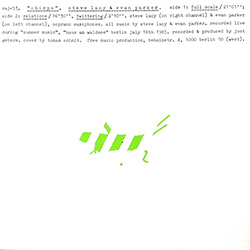
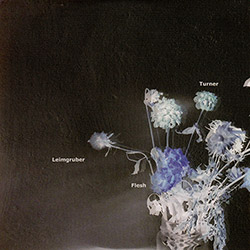

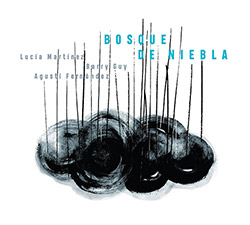


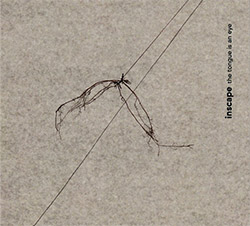
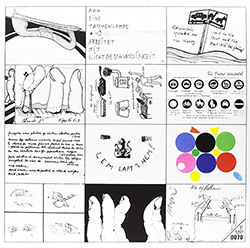
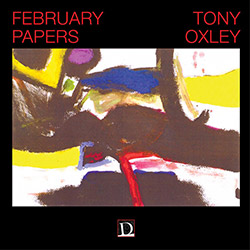
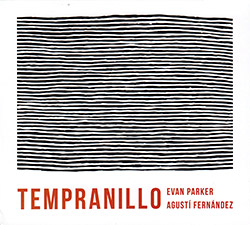
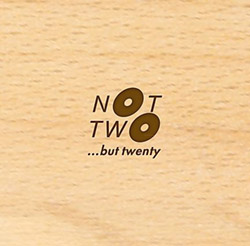
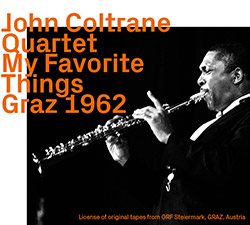





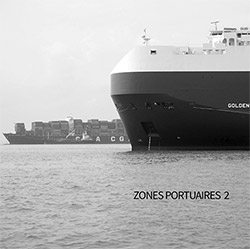
![111 (Michelle / Villamil): Live at Opus 40 [CASSETTE]](https://www.teuthida.com/productImages/misc4/35986.jpg)
![del Pino, Francisco / Charlotte Mundy: The Sea [CASSETTE]](https://www.teuthida.com/productImages/misc4/35987.jpg)

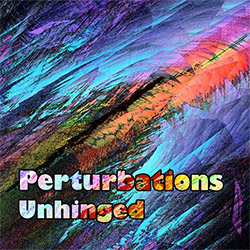

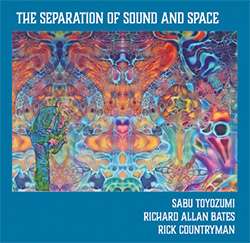
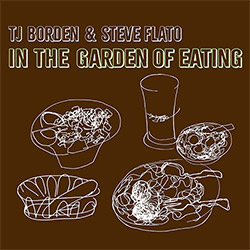

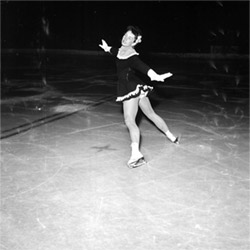
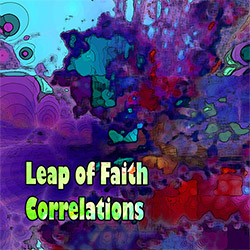

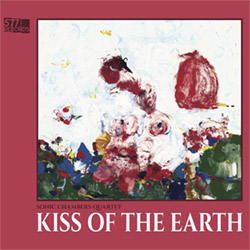

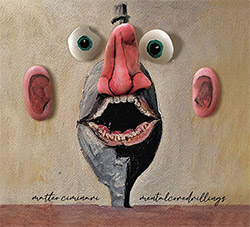
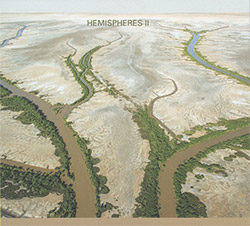
![Niblock, Phill / Anna Clementi / Thomas Stern: Zound Delta 2 [VINYL]](https://www.teuthida.com/productImages/misc4/34623.jpg)
![Yoko, Ono / The Great Learning Orchestra: Selected Recordings From Grapefruit [2 CDs]](https://www.teuthida.com/productImages/misc4/35841.jpg)

![Brotzmann, Peter / John Edwards / Steve Noble / Jason Adasiewicz: The Quartet [2 CDs]](https://www.teuthida.com/productImages/misc4/35975.jpg)
![Brotzmann, Peter / John Edwards / Steve Noble / Jason Adasiewicz: The Quartet [VINYL 2 LPs]](https://www.teuthida.com/productImages/misc4/35976.jpg)
![Thomas, Pat: The Solar Model of Ibn-Al Shatir [VINYL]](https://www.teuthida.com/productImages/misc4/36044.jpg)
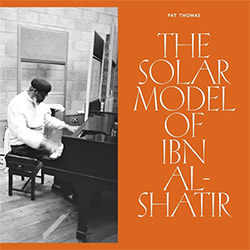



![Rodrigues, Ernesto / Nuno Torres / Guilherme Rodrigues: Whispers In The Moonlight - In Seven Movements [2CDs]](https://www.teuthida.com/productImages/misc4/35765.jpg)



![Cocks, Laura: FATHM [VINYL]](https://www.teuthida.com/productImages/misc4/36055.jpg)













![Schindler, Udo / Sandy Ewen / Damon Smith: Munich Sound Studies Vols. 4, 5 & 6 [3 CDs]](https://www.teuthida.com/productImages/misc4/35966.jpg)
![Turbulence Orchestra & Sub-Units: Smear Out the Difficulties (Double Live) [2 CDs]](https://www.teuthida.com/productImages/misc4/36048.jpg)

![Myers, David Lee : Tin Drop Tear [BOOK w/ DOWNLOAD]](https://www.teuthida.com/productImages/misc4/36030.jpg)

![Ackerley / Prymek / Turner: All Hope With Sleeping Minds [CASSETTE]](https://www.teuthida.com/productImages/misc4/35950.jpg)








![Olencki, Weston : Pearls Ground Down To Powder [VINYL]](https://www.teuthida.com/productImages/misc4/35956.jpg)
![Myers, David Lee: Oculus [2CDs]](https://www.teuthida.com/productImages/misc4/35857.jpg)


![dustsceawung: dustsceawung [CASSETTE w/ Download]](https://www.teuthida.com/productImages/misc4/35753.jpg)




![Halls of the Machine: Atmospheres For Lovers And Sleepers [CASSETTE w/ DOWNLOAD]](https://www.teuthida.com/productImages/misc4/35806.jpg)











![Zorn, John / JACK Quartet: The Complete String Quartets [2 CDs]](https://www.teuthida.com/productImages/misc4/35609.jpg)

![Lonsdale, Eden: Dawnings [2 CDs]](https://www.teuthida.com/productImages/misc4/35480.jpg)







![Sanna, Claudio: Compositori Sardi Contemporanei II [2 CDs]](https://www.teuthida.com/productImages/misc4/35317.jpg)







![Zurria, Manuel: Fame di Vento [3 CDs]](https://www.teuthida.com/productImages/misc4/35167.jpg)

![Electric Bird Noise / Derek Roddy: 8-10-22 [CD EP]](https://www.teuthida.com/productImages/misc4/35970.jpg)








![Elephant9 : Mythical River [VINYL]](https://www.teuthida.com/productImages/misc4/34624.jpg)



![Elephant9 with Terje Rypdal: Catching Fire [VINYL 2 LPs]](https://www.teuthida.com/productImages/misc4/35355.jpg)
![Deerlady (Obomsawin, Mali / Magdalena Abrego): Greatest Hits [VINYL]](https://www.teuthida.com/productImages/misc4/34876.jpg)







![Surplus 1980: Illusion of Consistency [CD]](https://www.teuthida.com/productImages/misc4/35069.jpg)
![Staiano, Moe: Away Towards the Light [VINYL + DOWNLOAD]](https://www.teuthida.com/productImages/misc4/35037.jpg)



![Caveira (Gomes / Sousa / Abras / Ferrandini): Ficar Vivo [VINYL]](https://www.teuthida.com/productImages/misc4/34643.jpg)
![Coley, Byron: Dating Tips for Touring Bands [VINYL]](https://www.teuthida.com/productImages/misc4/17906.jpg)

![Lost Kisses: My Life is Sad & Funny [DVD]](https://www.teuthida.com/productImages/misc4/lostKissesDVD.jpg)